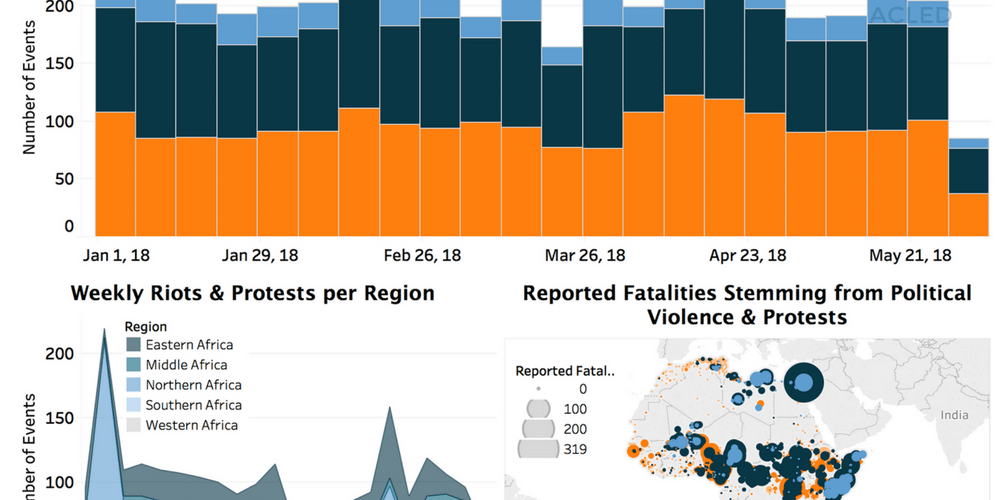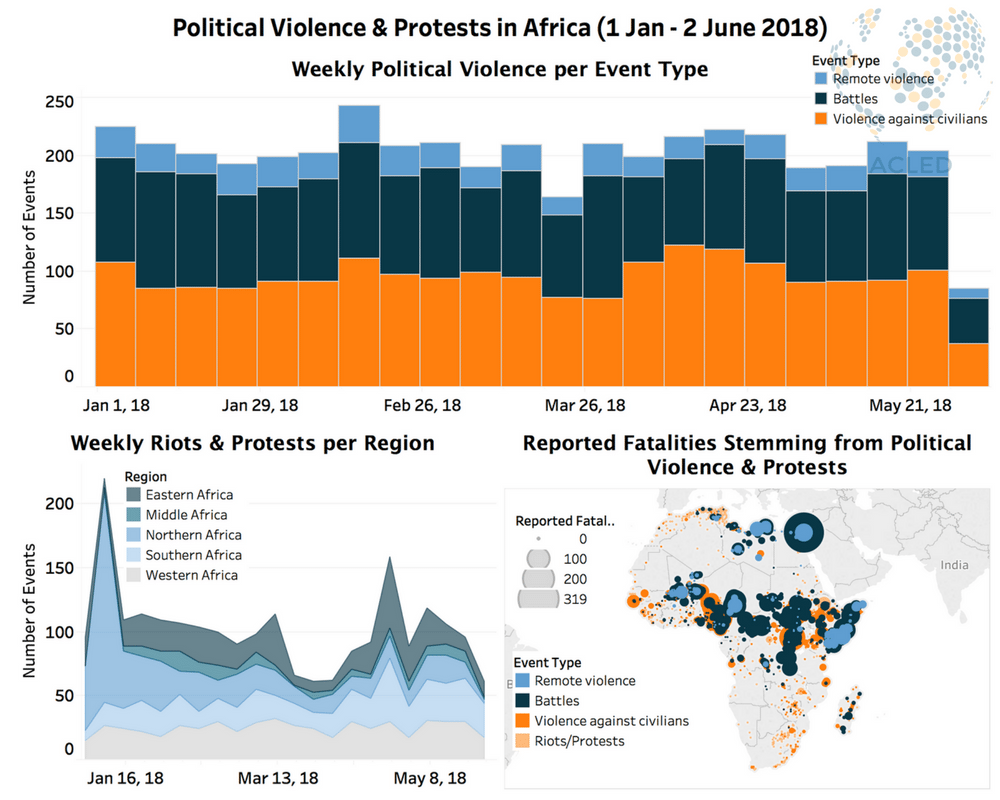Key trends in Africa on the week of May 27th include the resurgence of violence by lesser active groups in the DRC’s Nord-Kivu; persisting instability in North Africa; visible tensions in low-activity countries; and important political reshufflings and moves in Guinea, Madagascar and Mali.
In Nord-Kivu in the Democratic Republic of Congo (DRC), there was a resurgence of activity at the end of May by actors so far relatively inactive in 2018. Elements of the Nduma Defence of Congo – Renewal faction (NDC-R) occupied the area around Bingi in Lubero territory for several days before kidnapping dozens of drivers and their passengers on May 25th and clashing with the Alliance of Patriots for a Free and Sovereign Congo (APCLS). NDC-R elements were last active at end of January when they clashed with the APCLS over territory control between Lubero and Masisi. The APCLS – also a low-activity actor – on that same week also engaged in reprisal attacks with the Hutu Nyatura faction of the Mayi Mayi in Lubero and Walikale territory. Finally, the Rude faction of the Democratic Forces for the Liberation of Rwanda (FDLR) kidnapped more than 30 civilians and killed one of them on 26 May in various locations of Rutshuru in Nord-Kivu. The group was last active in November 2017. The growing instability in the DRC is combined with tensions around the electoral process. Parallel to organisational challenges, there are increasing concerns that president Kabila could discard the Constitution and seek a third term in the December elections. Meetings have been held between the Rwandan, Angolan and European Union leaders since the end of May, showing rising alarm among regional and international actors over the situation in the DRC.
Instability is also persisting in North Africa. In Libya, while the state forces regained some grounds in Derna against the Derna Protection Force (DPF), they were surprised at their Tamanhint air base in Sebha by an attack attributed to the Brigades for the Defence of Benghazi (BDB). Fighting between BDB and LNA around Tamanhint also took place in April last year. There has been prolonged violence in Sebha over the past few months but mostly between the Tebu and Awlad Suleiman ethnic groups. Islamic State militants have also stepped up their operations in Libya with as many as five attacks in the area of Ajdabiya in less than three months. Three of those attacks were suicide bombings, suggesting that the group retains significant capabilities. In Tunisia, Soldiers of the Caliphate militants launched a rare IED attack on a pipeline transporting fuel and oil products in the Sbeitla area in Kasserine governorate on June 2nd.
Other developments in Africa on the week of May 27th underlined tensions in some low-activity countries. In Equatorial Guinea for instance, there is a persisting heavy repression of opposition voices. A February court order dissolved the main opposition party, the Citizens for the Innovation of Equatorial Guinea (CI) and jailed 21 of its activists. Most recently, on May 28th, a former army captain and close CI relative was reportedly murdered at the Malabo Central Prison in Bioko Norte in a suspected state assassination. In Gabon, the political violence landscape is mostly dominated by riots and protests. On May 28th however, unknown assailants opened fire on a Republican Guard agent on a surveillance mission in the first district of Libreville, leaving him injured.
Finally, there were important political reshufflings and moves in several African countries on the week of May 27th. In Guinea for instance, president Conde appointed a new prime minister – Ibrahima Kassory Fofana – and government on May 21st and 26th respectively. The move came against the background of prolonged political unrest following opposition parties’ contestation of the outcome of the February local elections and teachers’ strike over pay. In Madagascar, president Rajaonarimampianina dissolved his government on May 25th following opposition protests against new electoral laws over April and May and the security forces’ repression of the protests. Christian Ntsay was nominated as the new prime minister on June 4th. In Mali, president Boubacar Keita announced that he will run for a second five-year term in the upcoming July elections. His announcement comes amid growing signs of frustration among young voters over the challenges that the country continues to face, particularly as insecurity remains rife in the northern and central regions.







